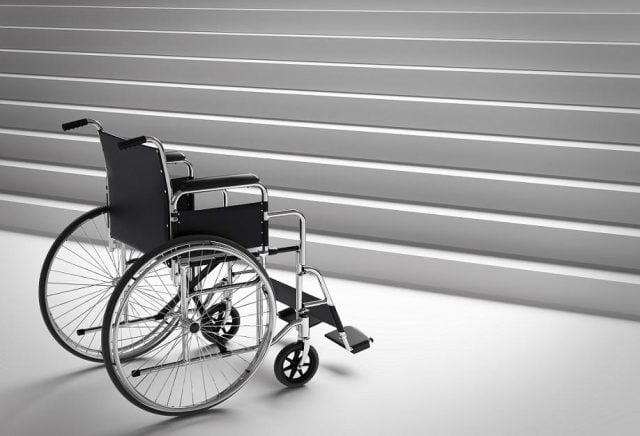The video of a young woman who denounced that she was not allowed to enter a clothing store because she was in a wheelchair caused outrage in Venezuela. The user, Kelly Ayary, published on her Twitter account a clip, which already has almost 300,000 views, where she explains what happened: «I was going to go shopping and they told me I could not go because it is not possible to enter in a wheelchair. People in wheelchairs cannot enter Balú (The store)».
According to what the young woman wrote in her twitter account, which is in the first places of trends in the social network, the act of discrimination occurred in the Balú store, located in the Propatria Shopping Center, a popular area in western Caracas, explains RT.
Due to the hundreds of interactions this tweet generated, Kelly added that she had told the warehouse security guard that he was committing an act of discrimination; however, as the young woman explains, «he just shrugged his shoulders».
«Not even the guard could give me reasons. My day was going so well that I didn’t want to upset it by arguing with people like that», she added in another tuit.
Reactions in Venezuela
After the publication of this complaint, in the social networks there were expressions of solidarity with the young woman and comments of rejection for the act of discrimination that she suffered.
Similarly, Internet users reported similar experiences of which they were victims in other commercial establishments and asked to boycott the store that prevented access.
In one of the comments, it is explained that some stores work «violating the spaces that the aisles should have» and that they possibly did not allow her to enter because they prefer to put shelves with articles (making the spaces between the aisles more narrow).
Another tweeter reported that she was forbidden access to a supermarket in two shopping centers in affluent areas of eastern Caracas because she was with her son, who has cerebral paralysis, and needs a small ‘special’ carriage to be able to move around. «That is discrimination of the purest».
In this regard, the former Foreign Minister and current Minister of Industries and National Production, Jorge Arreaza, described what happened as «unacceptable» and wrote that he will transmit it to the authorities in charge.
The store regrets what happened
A day after what happened, the store published a statement stating that it «categorically rejects any discriminatory act» and that it regrets «deeply» that Kelly Ayary had been banned from entering.
According to those responsible for the chain of clothes stores, the decision is «totally unacceptable» and «does not correspond to any policy of the brand». In addition, it ensures that «the fact is being investigated» and that «decisions and measures» will be taken to prevent it from ever happening again.
What does the law say?
In Venezuela, since 2006, there is the Law for Persons with Disabilities, the objective of which is «to regulate the means and mechanisms to guarantee the integral development of persons with disabilities in a full and autonomous manner, in accordance with their capacities».
Article 9 of the aforementioned regulations establishes that «no person may be subjected to discriminatory treatment for reasons of disability».
Similarly, paragraph 31 stipulates that movements must be «without obstacles or barriers» and «safe access» must be allowed for people with disabilities in residential areas, educational, sports, cultural and health centers; commercial establishments and offices; recreation, tourist sites, among others.
The text also states that those responsible will be fined, if it is found «that any of the infractions specifically established in this Law has been incurred».
In the same way, the Venezuelan Constitution states in its article 81 that «all persons with disabilities or special needs have the right to the full and autonomous exercise of their capacities and to their integration to their family and community».


